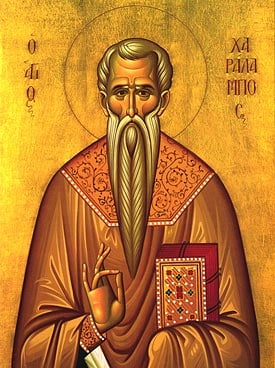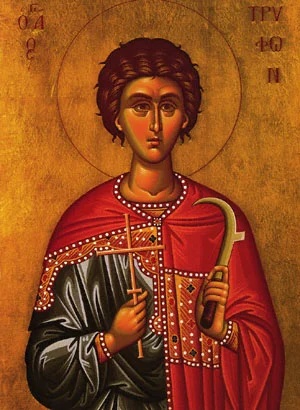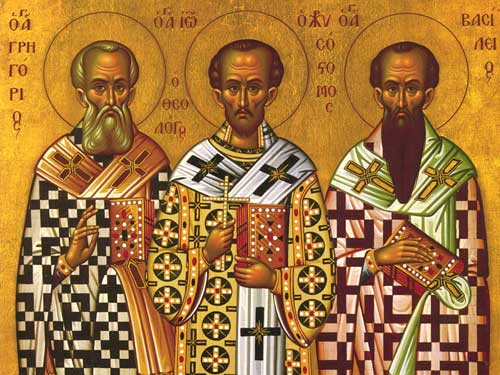Now before faith came, we were confined under the law, kept under restraint until faith should be revealed. So that the law was our custodian until Christ came, that we might be justified by faith. But now that faith has come, we are no longer under a custodian; for in Christ Jesus you are all sons of God, through faith. For as many of you as were baptized into Christ have put on Christ. There is neither Jew nor Greek, there is neither slave nor free, there is neither male nor female; for you are all one in Christ Jesus. And if you are Christ’s, then you are Abraham’s offspring, heirs according to promise. I mean that the heir, as long as he is a child, is no better than a slave, though he is the owner of all the estate; but he is under guardians and trustees until the date set by the father. So with us; when we were children, we were slaves to the elemental spirits of the universe. But when the time had fully come, God sent forth His Son, born of woman, born under the law, to redeem those who were under the law, so that we might receive adoption as sons.
Galatians 3:23-29; 4:1-5 (Epistle for the Feast of St. Kyriaki)
On July 7, we commemorate St. Kyriaki. St. Kyriaki lived in the third century and was martyred in the year 289 A.D. Her parents gave her the name Kyriaki, which is the Greek word for Sunday, the day of the Lord, because they were devout Christians. Kyriaki had many suitors as a young woman, since she was both beautiful and came from a wealthy family. She rejected them all, desiring instead to dedicate her life to the Lord. When a magistrate from Nicomedia who wished to see his son marry Kyriaki was rejected, he reported Kyriaki and her parents to the Emperor Diocletian, who was waging one of the worst periods of persecution against Christians.
Diocletian exiled both of Kyriaki’s parents and ordered Kyriaki to be whipped and tortured. In prison, Christ appeared to her and healed her wounds. Hilarion, who was eparch of Bithynia in Chalcedon, where all of this was taking place, saw Kyriaki’s healed wounds and said that the pagan gods had healed her out of pity and ordered that she go to the pagan temple to offer thanks to them. Kyriaki prayed for God to destroy the idols in the temple and a sudden earthquake happened and destroyed all of them. Hilarion was struck by lightning and died instantly after blaspheming the name of God. Hilarion’s successor Apollonius tried unsuccessfully to burn her alive and have her eaten by wild animals, but the flames were extinguished and the beasts became tame and gentle. Finally, St. Kyriaki was sentenced to death by the sword, but rendered her soul to God before the sword was lowered on her head. She was 21 when she died.
November 25, we commemorate St. Katherine. Saint Katherine lived in the third century and was martyred early in the fourth century, in the year 305. She was from a well-to-do family and received a very rich and comprehensive education. She studied the finest philosophers and became known for her wisdom. Her mother was a secret Christian who brought her daughter Katherine to her own spiritual father, for mentoring and eventually to be baptized.
The Epistle lesson from the feastday St. Kyriaki, which is also read on the feastdays of other virgin-martyrs like St. Katherine (November 25), St. Barbara (December 4) and St. Paraskevi (July 26) is from St. Paul’s Epistle to the Galatians. This passage reminds us that before Christ came, it was the Mosaic Law (the Law given to Moses, based on the Ten Commandments) that guided God’s people. It also confined them. The Law became oppressive to God’s people. There was too many commandments and people could not even learn all of them, let alone follow all of them. Temple officials and Jewish leaders also oppressed the people, abusing the Law, their knowledge of it and their power of the people to enact difficult and expensive rituals which they would benefit from in a financial way and through abuse of power.
St. Kyriaki managed to stand her ground against powerful leaders, who pressured her to pay homage to pagan gods. Her response was to stand resolute as a dedicated disciple of the Lord. Her name Kyriaki was a constant testament to her faith in the Lord. She indeed loved God with all her mind, her soul, her heart and her strength. She embodied the two great commandments, which Christ gave when He summarized the Law—to love God and to love our neighbor. While St. Kyriaki had beauty and wealth, her faith was based not on these things, but loving God and serving others. Wealth and beauty certainly are helpful things to have in the secular world, but without faith and without love, these things will gain us nothing in the eyes of God.
In God’s eyes, there is “no longer Jew nor Greek, there is neither slave nor free, there is neither male nor female, for you are all one in Christ Jesus. And if you are Christ’s, then you are Abraham’s offspring, heirs according to promise.” (Galatians 3:28-29) However, the inheritance we are to receive is not material but rather spiritual. It is not temporary or fleeting, but it is eternal. And our inheritance is not achieved through wealth or renown, but through faith and service. The lesson of St. Kyriaki is that we are to dedicate our lives to the Lord, and to focus on the Kingdom of God within us. True beauty and true wealth are based on what is inside of us, and a willingness to eschew the kingdom of this world to focus inwardly on faith.
Your maiden Martyr, like a lamb, cries out, “O Jesus, for You, my pure Bridegroom, I long; and seeking You I compete; and I am crucified and buried with You in Your baptism. I suffer for Your sake, that I may reign with You. I die for You that I may also live in You. Accept me as an unblemished sacrifice as I offer myself to You with love.” At her entreaties and intercessions, save our souls, O Merciful Lord. (Apolytikion of St. Kyriaki, Trans. by Fr. Seraphim Dedes)
Saint Kyriaki lived for the Lord and was ultimately willing to die for Him. Through her powerful and public witness, many came to Christ. May we cultivate in ourselves the desire to be a “Kyriaki,” a dedicated servant of the Lord.


